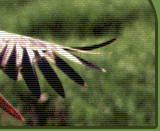Finland’s experience in restoring coastal grasslands In the middle of August cooperation partners of the LIFE-Nature project Restoration of Floodplain Meadows participated in an experience exchange trip to Finland. The aim was to gain experience from a similar project that deals with restoration of flooded coastal grasslands and to facilitate the knowledge about organization of nature conservation in other EU countries.  | | Entering Medvastö coastal | | meadows | Finland’s experience in restoring coastal grasslands In the middle of August cooperation partners of the LIFE-Nature project Restoration of Floodplain Meadows participated in an experience exchange trip to Finland. The aim was to gain experience from a similar project that deals with restoration of flooded coastal grasslands and to facilitate the knowledge about organization of nature conservation in other EU countries. At first there was a thematic tour around the Helsinki city – the Ecocity. City planning and practical enforcement observing environmentally friendly principles and using alternative energy resources. The tour was guided by Elina Nummi, the Director of the Public Works Department of the City of Helsinki. Next, the Manager of the LIFE-Nature Project Marjo Priha from City of Helsinki Environment Centre told about processes of the Lintulahdet Life project. Together with the project worker Viliina Räty we visited the Viikki – the part of the Helsinki city. This oasis is an important resting-place and feeding ground for migratory waders and is located in the centre of the capital city. There are built several bird watching towers and through wet places is leading a regular plank-way and full information panels. Slideshow about LIFE-Natrure project "Lintulahdet" activities is available here. You can find there also links to the related articles from national and regional newspapers (under below). On the next day we went to Loppi (~90 km to NW from Helsinki) - a farm Pappilanpuisto that is engaged in managing meadows, livestock breeding and floriculture. There were discussions about the experience of agriculture and nature protection in Finland, about agro-environmental payments and other binding issues. A big surprise was that both farmers in the Pappilanpuisto | 
| | At Pappilanpuisto farmstead | farm are keeping a mobile cow herd, and in order to graze natural meadows in the Natura 2000 territories, from time to time they are relocating the herd even 100 km from home. Cows are special – breed of Southeast-Finland – with white and brown colour, small size and without horns. After a rich lunch in the homestead, we went to coastal grasslands of Medvastö at Kirkkonummi. Here is organized a restoration of more than 30 ha of grasslands. The open flooded grasslands are cleared from reeds and within the framework of the LIFE-Nature Project it is the main struggle in the whole coast of Gulf of Finland. Long reeds are not suitable for resting of waders; therefore they are specially grinded and shattered. Volunteers from summer camps organized by the Finland World Wide Fund for Nature participated in restoration of Fennoscandian wooded meadows. At the end of the experience exchange trip, we visited another place of 12 LIFE-Nature Project Lintulahdet places - Laajalahti. The 200 ha large coastal grasslands are located in the outskirts of the city Espoo. Near to the restored grassland in the territory of the Villa Elfvik several bird watching towers and nature trails have been built. The historically outstanding building serves as an environmental school in which all school classes of the Espoo city are learning. According to the age groups each class has a foreseen visit in a day and an own program. The demand is so big that the institution financed by the municipality operates round the year. In summer, it is open to visitors as an environmental information center. | 






